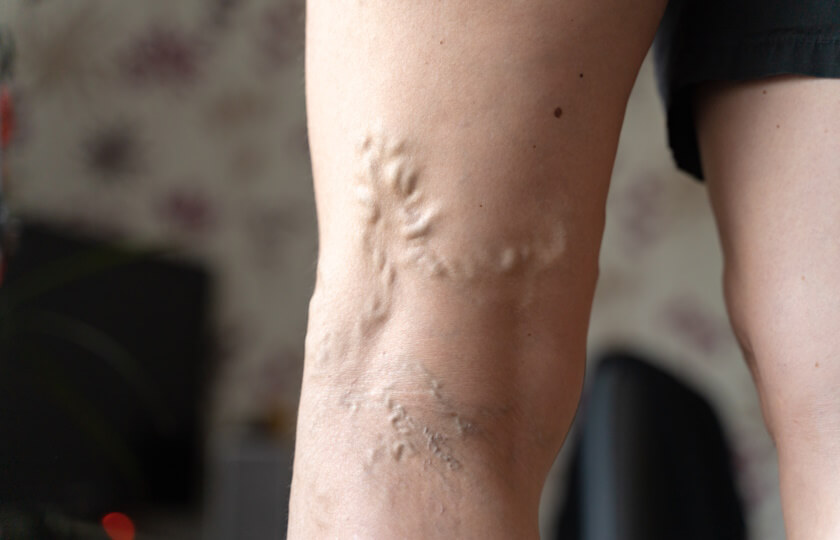
Home Remedies for Varicose Veins:
Do They Really Work?
Varicose veins are a common condition that affects about 23% of adults worldwide. They are swollen, twisted veins that are visible under the skin, usually in the legs. This condition is caused by a malfunction in the valves of the veins, which makes it harder for the blood to flow back to the heart. In this blog article, we will discuss some effective home remedies for varicose veins.
Home remedies for varicose veins can be effective in managing the symptoms and slowing down the progression of the condition. However, it’s important to note that home remedies may not completely cure varicose veins. For instance, compression stockings can help improve blood flow and reduce swelling, but they may not completely eliminate varicose veins.
It’s also important to understand that the effectiveness of home remedies can vary from person to person, depending on the severity of the condition. Some people may experience significant relief from home remedies, while others may require medical treatment and ultimately surgical or minimally invasive procedures.
It’s recommended to use home remedies as a complementary approach to medical treatment, especially in cases where the symptoms are mild to moderate. If you have severe varicose veins or experience any concerning symptoms, it’s best to seek vascular specialist attention to prevent any complications.
Symptoms of Varicose Veins:
The symptoms of varicose veins may vary from person to person. Some common symptoms include:
- Swollen, twisted veins that are visible under the skin.
- Aching or heaviness in the legs.
- Cramping, throbbing, or burning sensation in the legs.
- Itching around the affected area.
- Skin discoloration or dryness near the affected veins.
Home Remedies / Treatment For Varicose Veins:
There are several home remedies that can help alleviate the symptoms of varicose veins. Here are some effective ones
Compression stockings:
Compression stockings are a type of elastic stockings that put pressure on your legs, helping to improve blood flow. They are especially useful if you have to stand or sit for long periods.
Exercise:
Regular exercise can help improve blood circulation and reduce the risk of developing varicose veins. Try low-impact exercises like walking, cycling, or swimming.
Massage:
Massaging the affected area can help improve blood flow and reduce swelling. Use gentle circular motions and avoid applying too much pressure.
Elevate your legs:
Elevating your legs above the heart level can help reduce swelling and improve blood flow. Try lying down and placing a pillow under your legs.
Diet:
Eating a healthy diet can help improve blood circulation and reduce inflammation. Try including foods rich in fiber, flavonoids, and antioxidants like berries, citrus fruits, and leafy greens.
Indian Home Remedies:
Aloe Vera:
Aloe vera gel has anti-inflammatory properties that can help reduce swelling and discomfort caused by varicose veins. Apply aloe vera gel to the affected area and gently massage for a few minutes.
Indian Gooseberry:
Indian gooseberry, also known as amla, is a rich source of vitamin C and antioxidants that can help improve blood circulation and reduce inflammation. Drink amla juice daily or apply a paste of amla powder and water to the affected area.
Ginger:
Ginger has anti-inflammatory properties that can help reduce swelling and pain caused by varicose veins. Add grated ginger to your meals or drink ginger tea to enjoy its benefits.
Natural Remedies:
Horse Chestnut:
Horse chestnut extract is a popular natural remedy for varicose veins. It contains a compound called aescin that can help improve blood circulation and reduce inflammation. Take horse chestnut supplements as directed by your healthcare provider.
Grape Seed Extract:
Grape seed extract is a rich source of antioxidants that can help improve blood circulation and reduce inflammation. Take grape seed extract supplements as directed by your healthcare provider.
Witch Hazel:
Witch hazel is a natural astringent that can help reduce swelling and inflammation caused by varicose veins. Apply witch hazel extract to the affected area using a cotton ball or cloth.
It’s important to note that while natural remedies can be effective in alleviating the symptoms of varicose veins, they should not replace medical treatment. Always consult a vascular surgeon or varicose vein specialist before trying any new remedies or supplements.
There have been many newer creams and ointments marketed with fancy names claiming to make varicose veins vanish or disappear. However, most of these creams have a mix of the contents as well as apple cidar vinegar and are only partially effective to improve local skin condition. The underlying valve function cannot be restored with local application of creams. Hence, people using these creams will find only temporary relief!
Also Read: Are Varicose Veins Hereditary?
When to Seek Medical Help?
While home remedies can help alleviate the symptoms of varicose veins, it’s essential to seek medical help if you experience any of the following:
- Severe pain or swelling in the legs.
- Skin ulcers near the affected veins.
- Bleeding from the affected veins.
- A sudden increase in the size or number of varicose veins.
In such cases, your doctor may recommend minimally invasive procedures like sclerotherapy or laser treatment to treat varicose veins.
Conclusion:
Varicose veins can be a painful and uncomfortable condition, but there are several home remedies that can help alleviate the symptoms. Compression stockings, exercise, massage, elevating your legs, and a healthy diet can all help improve blood circulation and reduce inflammation. If you experience any severe symptoms, seek medical help to get proper treatment. With proper care, you can manage varicose veins effectively and improve your quality of life.
Follow us on YouTube

MBBS, MS, MRCS, DNB-Fellow
Dr. Sumit Kapadia
Dr. Sumit Kapadia / MR KAPADIA SUMIT a gold-medalist from Baroda Medical College, obtained his general surgical training and senior residency from SSG Hospital, Vadodara.

MBBS, MS, MRCS, DNB-Fellow
Dr. Sumit Kapadia
Dr. Sumit Kapadia / MR KAPADIA SUMIT a gold-medalist from Baroda Medical College, obtained his general surgical training and senior residency from SSG Hospital, Vadodara.




